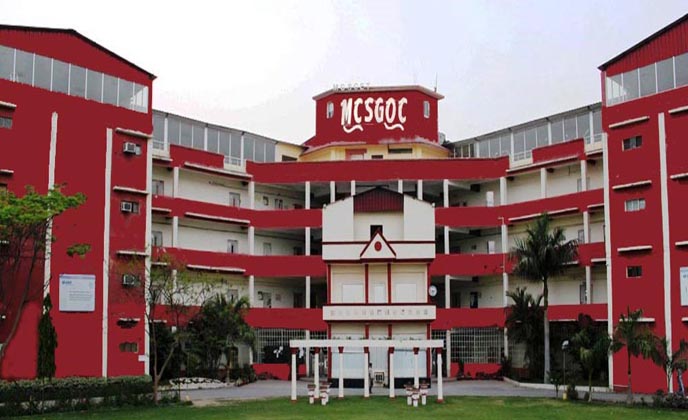Introduction
When it comes to building a career in teaching, choosing the right training college is just as important as choosing the profession itself. In Uttar Pradesh, the Basic Training Certificate (BTC) program—now popularly known as D.El.Ed (Diploma in Elementary Education)—is one of the most sought-after courses for aspiring primary school teachers. Among various cities, Lucknow has emerged as a leading hub for BTC colleges, offering both government-run institutions and private colleges that cater to thousands of students every year.
However, one of the biggest dilemmas students face is whether to choose a private BTC college or a government BTC college in Lucknow. Both types of institutions have their advantages and limitations. Government colleges are known for their affordability, experienced faculty, and strong reputation in teacher recruitment drives. On the other hand, private colleges are appreciated for their modern infrastructure, flexible admission process, and availability of seats.
Since your career as a teacher depends significantly on the choice you make, it is important to understand the pros and cons of BTC Colleges in Lucknow. In this article, we will break down the differences between private and government institutions, compare their strengths and weaknesses, and highlight the key factors you should consider before taking admission.
What is BTC and Why Choose Lucknow?
BTC (Basic Training Certificate) is a two-year teacher training course that prepares candidates to become primary school teachers. Lucknow has emerged as one of the top destinations for this course due to its well-established academic infrastructure, experienced faculty, and availability of both government and private institutions.
BTC stands for Basic Training Certificate. It is a two-year teacher training course required to become a primary school teacher in India. After completing BTC, candidates become eligible to teach classes 1 to 5 in government or private schools.
Lucknow, the capital of Uttar Pradesh, is home to many well-known BTC colleges. These colleges can be divided into two categories:
- Government BTC Colleges
- Private BTC Colleges
Let’s look at each of these options in detail.
Government BTC Colleges in Lucknow
1. Pros of Government BTC Colleges
- Affordable Fee Structure: Government colleges are highly subsidized, making them budget-friendly for students.
- Recognition & Credibility: Government BTC colleges are widely recognized by education boards and authorities.
- Experienced Faculty: Most government colleges have senior faculty members with years of teaching experience.
- Job Preference: Graduates from government institutions often get preference in government teacher recruitment drives.
2. Cons of Government BTC Colleges
- Limited Seats: Admission is highly competitive due to fewer seats.
- Strict Admission Process: Selection is based on merit and entrance exams, leaving little flexibility.
- Traditional Teaching Methods: Some colleges may still follow outdated methodologies with limited exposure to modern teaching tools.
Private BTC Colleges in Lucknow
1. Pros of Private BTC Colleges
- More Availability of Seats: Easier admissions compared to government colleges.
- Modern Facilities: Many private institutions provide smart classrooms, digital labs, and better infrastructure.
- Flexible Admission Process: Students with lower merit scores also get opportunities.
- Industry Exposure: Some private colleges collaborate with schools for training and internships.
2. Cons of Private BTC Colleges
- Higher Fees: Private BTC colleges charge significantly more than government colleges.
- Variable Quality: The quality of education may differ from one private college to another.
- Less Preference in Government Jobs: While valid, private college degrees may not always carry the same weight as government ones in recruitment.
Key Factors to Consider Before Choosing a BTC College in Lucknow
- Budget: Decide based on your financial capacity.
- Career Goal: If aiming for government teaching jobs, government BTC colleges may be a better choice.
- Infrastructure: Evaluate facilities like libraries, labs, and teaching tools.
- Placement Support: Some private colleges provide better campus placement opportunities.
- Accreditation: Ensure the college is recognized by NCTE (National Council for Teacher Education).
Things to Consider Before Making a Decision
- Accreditation: Always check if the college is approved by NCTE (National Council for Teacher Education). This is important for the validity of your degree.
- Placement Record: Ask about the past placement records of the college to know how successful their students have been in getting jobs.
- Location and Travel: Make sure the college is located in a place where you can travel easily or stay safely.
- Reviews from Former Students: Talking to ex-students or checking online reviews can give you a good idea about the real picture of the college.
Key Differences at a Glance
| Feature | Government BTC Colleges | Private BTC Colleges |
|---|---|---|
| Admission Process | Tough entrance exam | Easier, sometimes direct |
| Course Fees | Low | High |
| Faculty | Experienced | Quality varies |
| Infrastructure | Basic but stable | Often modern and upgraded |
| Recognition | High | Depends on the institution |
| Job Opportunities | Better for government jobs | May need to look in private sector |
| Student Attention | Less personal | More personalized |
Conclusion
Both private and government BTC colleges in Lucknow have their own strengths and limitations. If affordability and government job preference are your priorities, government colleges are the best choice. However, if you want modern facilities, easier admissions, and exposure to new teaching practices, private BTC colleges can also be a good option.
By carefully weighing the pros and cons, you can select the right institution to shape your career as a teacher.









